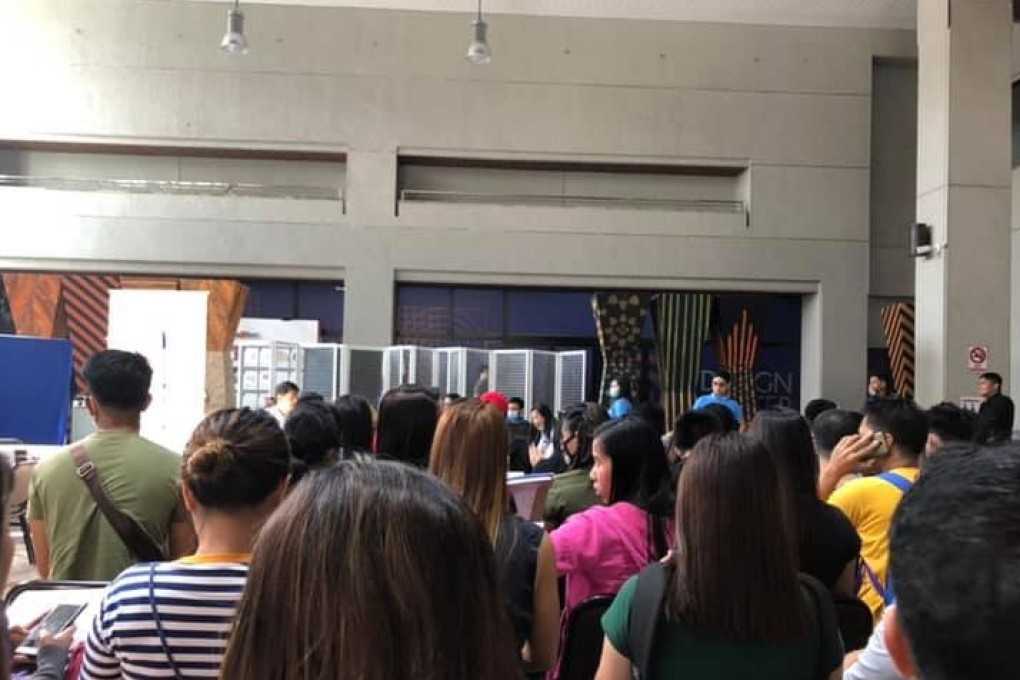Advertisement
Coronavirus: Filipino workers stranded in Manila ask World Court to overturn Duterte’s Hong Kong travel ban
- More than 1,000 Filipinos in Hong Kong as engineers, pilots and domestic helpers have been unable to leave Philippines since February 2 due to coronavirus ban
- They have asked the International Court of Justice to pressure the Duterte administration into a ‘partial lifting or easing of the onerous travel ban’
Reading Time:3 minutes
Why you can trust SCMP

More than 1,000 Filipinos employed in Hong Kong but banned from going there by Manila over the Covid-19 outbreak have asked the World Court to pressure the Philippine government to let them return to their jobs.
In a Thursday letter to the International Court of Justice in The Hague, the workers appealed for “urgent intervention after our government unfairly and unjustifiably violated our right to travel and resume our employment in Hong Kong”.
Manila on February 2 announced a ban on all travel to and from mainland China, Macau and Hong Kong in a bid to curb the spread of the novel coronavirus, which has infected almost 65,000 people around the world and killed almost 1,400. There have been three confirmed cases, including one death, in the Philippines so far.
Advertisement
Explaining President Rodrigo Duterte’s decision at the time, immigration spokesperson Dana Sandoval said the ban included Filipinos departing for the mainland or its special administrative regions. “The ban does not specify exceptions, hence all Filipinos regardless of visa type will be banned.”
In their letter to the International Court of Justice, the workers described themselves as “Filipinos in Hong Kong but now stranded in Manila”. “More than 1,000 Filipinos, employed in Hong Kong as teachers, engineers, entrepreneurs, designers, journalists, pilots, flight attendants and domestic helpers, were caught flat-footed while on holiday here in the Philippines,” they wrote.
Advertisement
Advertisement
Select Voice
Select Speed
1.00x